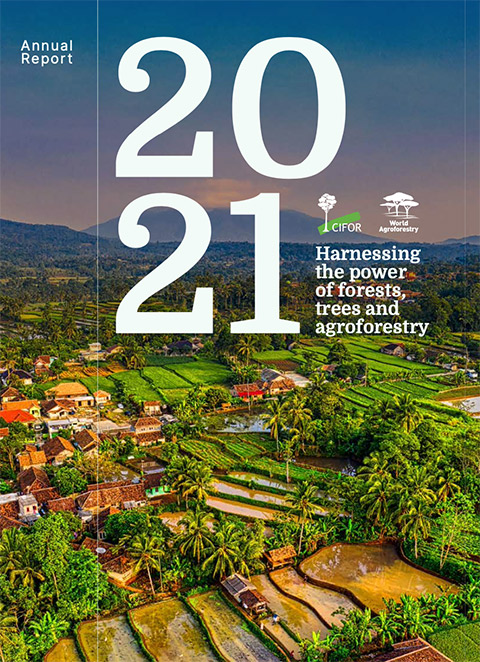The Global Comparative Study on REDD+ (GCS REDD+) launched its fourth phase in 2021, building on over a decade of research on actions to reduce emissions from deforestation and forest degradation, and enhance forest carbon stocks.
In Viet Nam, the Ministry of Agriculture and Rural Development (MARD) referenced GCS REDD+ global research findings on carbon rights and REDD+ benefit-sharing in a draft decree that, once approved, will be a criterion for receipt of results-based payments.
In Peru, the Ministry of Environment submitted its updated national Forest Reference Emissions Level (FREL) to the United Nations Framework Convention on Climate Change. Informed by GCS REDD+ research on soil carbon emissions from deforestation and forest degradation, the FREL is the first official national document to recognize the importance of Amazonian peatlands. And the National Service of Protected Areas (SERNANP) officially adopted the customized adaptive learning tool ¿Cómo vamos? on multistakeholder management committees.
In Indonesia, several GCS REDD+ contributions were adopted in the country’s second FREL, including the addition of methane and nitrous oxide emissions from peatland degradation, a new approach for calculating emissions from mangrove conversion apart from other land uses, and the inclusion of emissions from peat fires.
Finally, CIFOR-ICRAF was invited to contribute to global initiatives such as the World Bank’s multi-donor trust fund Enhancing Access to Benefits while Lowering Emissions (EnABLE), the LEAF Coalition’s Emergent Working Group, and the International Land Coalition (ILC). Requests also came from the private sector for scientific input, as well as from countries such as Guatemala and Viet Nam to support the development of national REDD+ benefit-sharing plans.
Supported by www.cifor-icraf.org/gcs/partners/funding-partners
“Our science-policy dialogues in Indonesia, Peru and DRC are bringing new insights into what is needed for countries to meet their post-CoP26 climate commitments.”
Pham Thu Thuy
Team Leader Climate change, energy & low-carbon development

